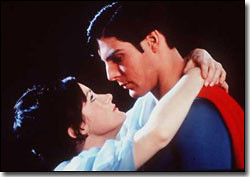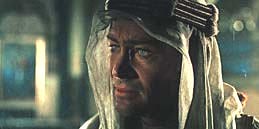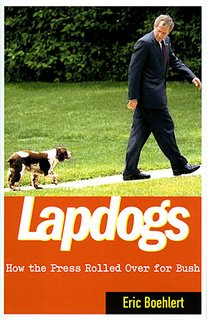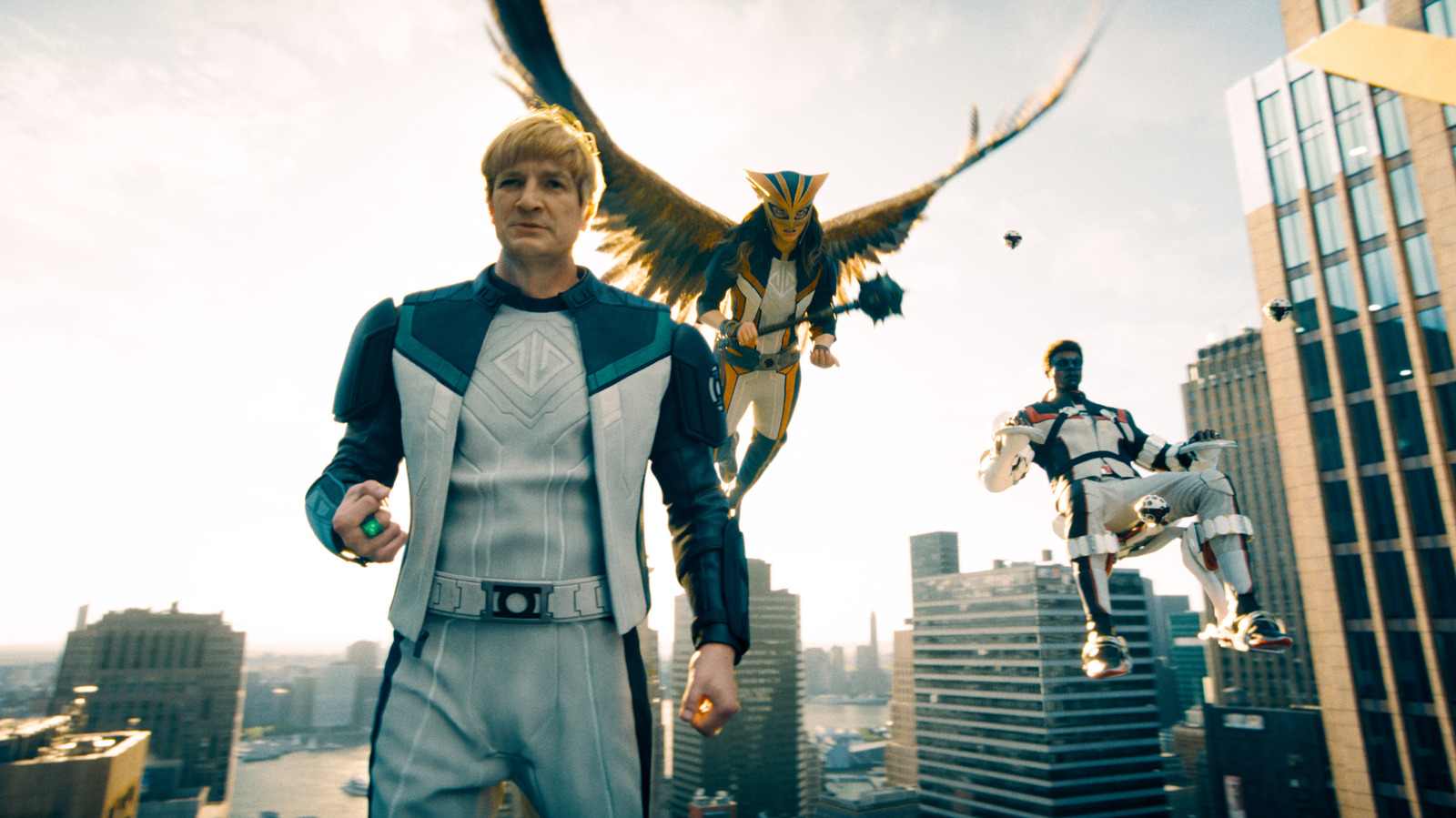 Superman Returns.
Superman Returns.I loved this film but whatever you do DO NOT see it in the IMAX 70mm format.
SPOILERSFirst a disclaimer: "Superman: The Movie" was one of my favorite films as a kid. The two biggest things that have stuck with me were Christopher Reeve's pitch perfect performance as Superman and John Williams' bombastic score.
I watched it again recently with the young'uns in order to get them in the mood for the new film. During the movie my daughter leaned over and asked me if I ever wished I could fly. I said "Sure, everybody does at one time or another. Usually in dreams."
But her question started wheels turning got me thinking and got me to take a little deeper look at a movie I'd taken at face value for twenty years. Pretty much everything superman accomplishes in "Superman" he does by flying. He woos Lois by taking her on a moonlight flight. He stops Lex Luthor's rocket scheme by flying after the rockets and he performs the ultimate
Deus Ex by flying so fast the world actually spins backwards and time regresses. Superman is a man that can bend steel and leap tall buildings, but most important he's a man that can live out our dreams of flying.
I think that's why Christopher Reeve's spinal injury while horseback riding hit us so hard. Sure, he was just an actor but he had become inseparable from the man he played on screen and the man who could fly could know no longer even walk.
Yet Reeve did something amazing. His initial reaction to his injury was deep depression. At on point he discussed ending his life with his wife Dana. With her help and with great determination he began to find purpose in curing his injury and walking again. He started a foundation for the cure of spinal cord injuries. And he took us all along for the ride- stubbornly molding out dreams of seeing him fly into dreams of seeing him get out of his wheelchair and take his first steps in years.
I bring all of this up because Christopher Reeve permeates "Superman Returns" without showing up in a single frame of the film. From Brandon Routh's voice characterizations and appearance to the dialog which lifts generously from the first Superman movie, Reeve is always there- his ghost hovering and smiling over the whole enterprise.
But what really strikes me is the film's subtext as it parallels Reeve's own life and taps into our own lost hopes for the man, particularly in the last act. Superman is on the receiving end of a kryptonite shiv to the back. He winds up in the hospital... Dying from his back injury. The people of the world stand vigil, hoping to see him fly again.
Then, having tapped into our real world hopes for Superman, director Bryan Singer finally gives us the happy ending we lost with the death of Reeve.
Superman flies.






































